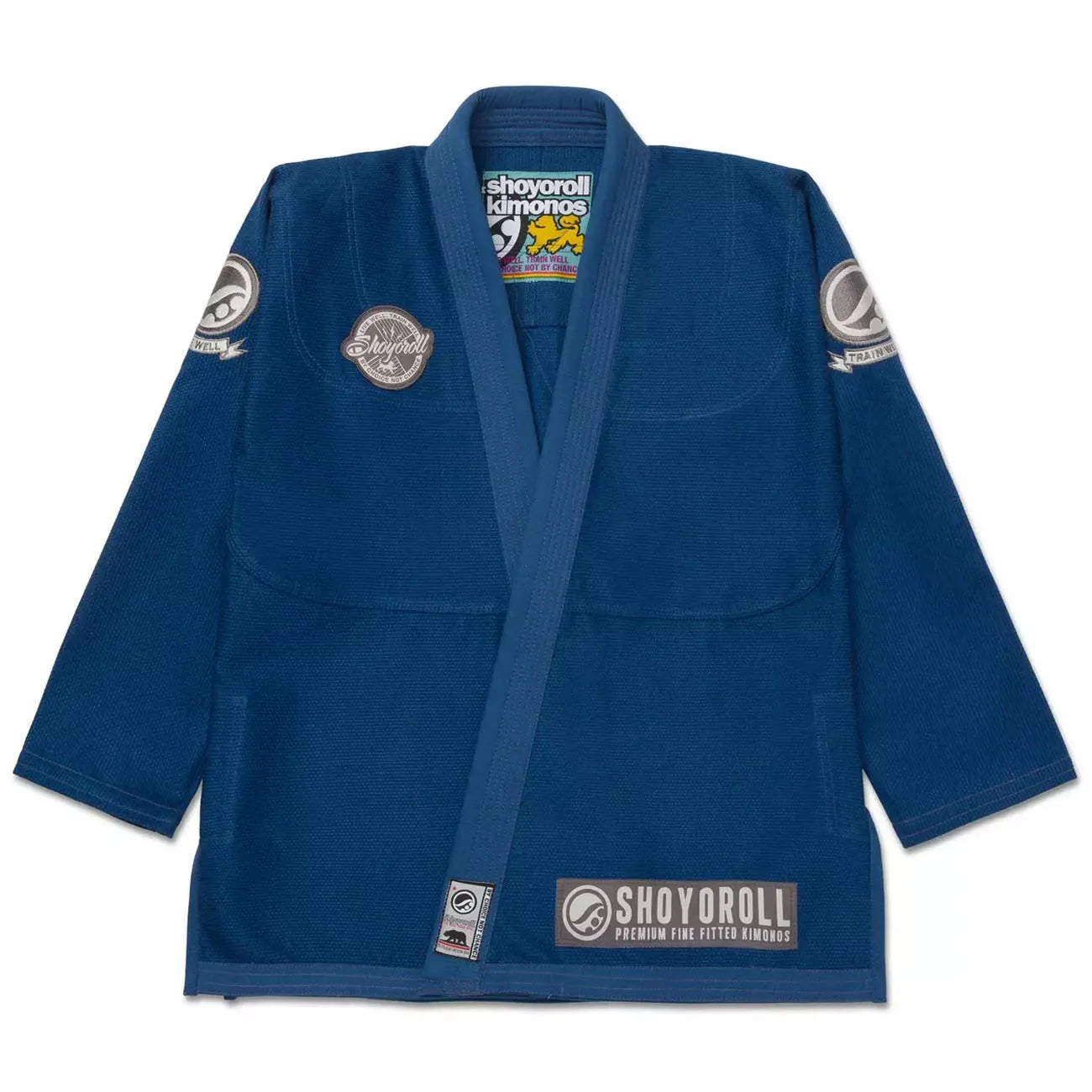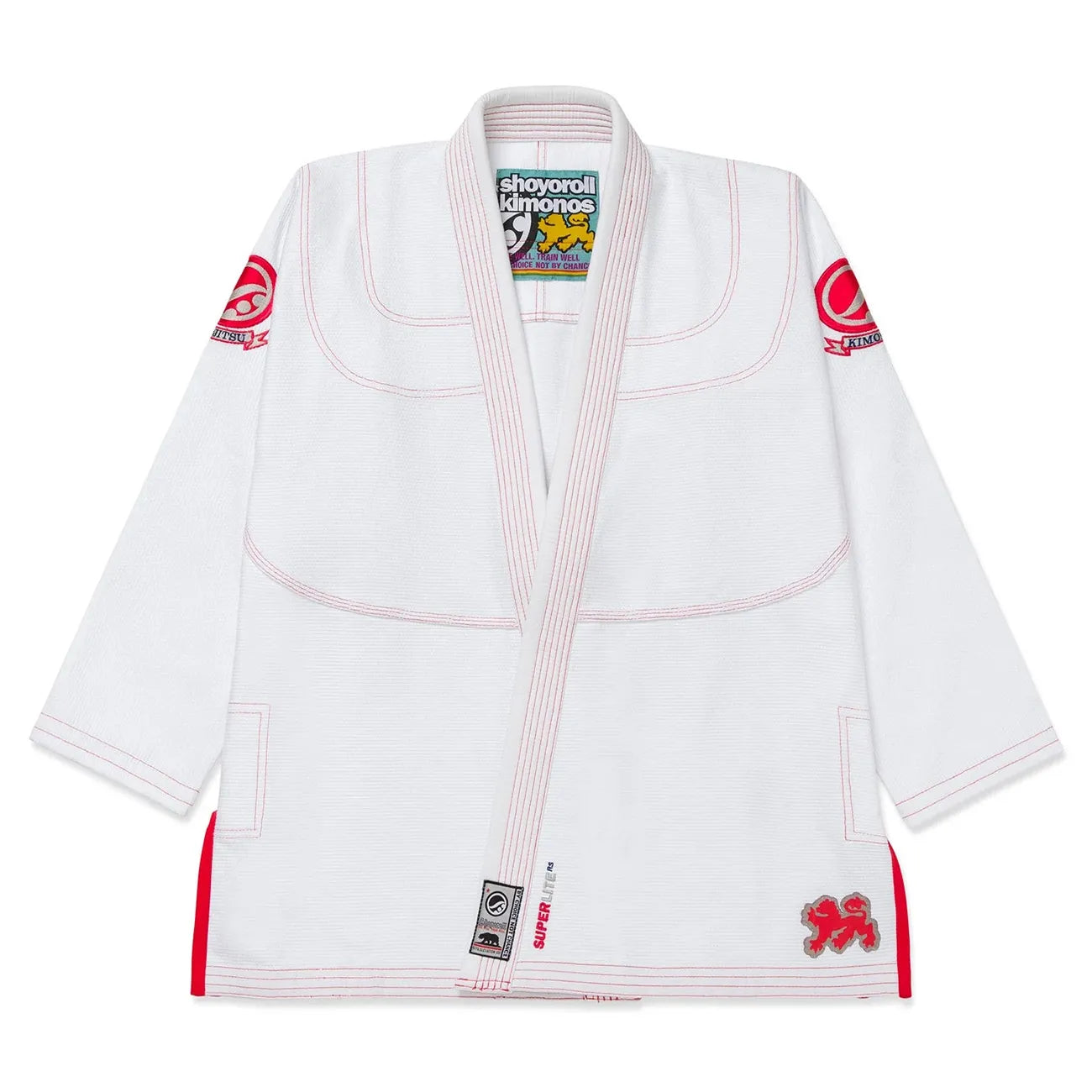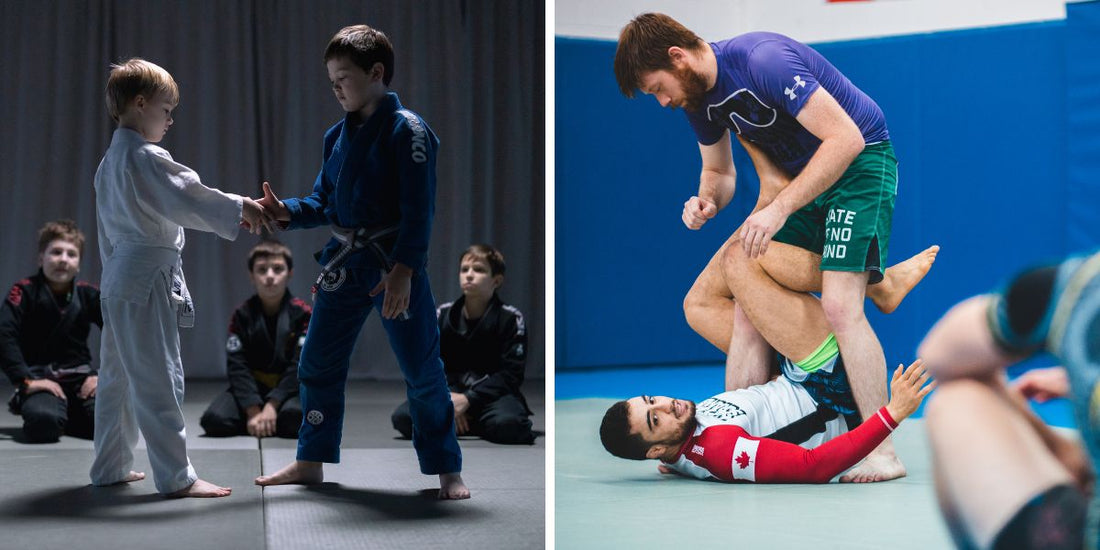Wrestlers vs BJJ: Which Grappling Art Wins in a Real Fight?
Wrestling and Brazilian Jiu-Jitsu (BJJ) are two of the most popular and effective grappling arts in the world. Both have produced champions, athletes, and fighters who are feared in the cage, on the mat, or even on the street. But many ask: if a wrestler and a BJJ practitioner face off in a real fight, who would come out on top? This article will explore the strengths, weaknesses, and differences of wrestlers vs BJJ fighters to find an answer. It will also explain how their skills apply to real fights and self-defense situations.
What Is Wrestling?
What Is Brazilian Jiu-Jitsu (BJJ)?
|
|
Brazilian Jiu-Jitsu focuses mainly on ground fighting and submissions. BJJ emphasizes technique, leverage, and positioning over raw strength. It allows smaller and weaker practitioners to defend and defeat larger opponents. The art trains fighters to fight well from their backs, to escape bad positions, and to use strategy and patience. |
Similarities Between Wrestlers and BJJ Fighters
Wrestlers and Brazilian Jiu-Jitsu (BJJ) fighters, despite their different disciplines, share many foundational traits and skills that contribute to their effectiveness on the mat. Understanding these commonalities highlights why crossover success between the two is frequent and beneficial.
Similarities Between Wrestlers and BJJ Fighters
Emphasis on Grappling and Control: Both wrestlers and BJJ practitioners prioritize controlling their opponent’s body. Wrestlers focus on takedowns and maintaining dominant positions, while BJJ fighters aim to secure positional control to set up submissions. This emphasis on leverage, balance, and body positioning is central to both arts.
Physical Conditioning and Mental Toughness: High levels of endurance, strength, and mental resilience are essential in both wrestling and BJJ. Training sessions are often physically grueling, requiring athletes to push through discomfort while maintaining focus and strategic thinking.
Use of Technique Over Raw Strength: While strength is helpful, technique often determines success in both sports. Wrestlers and BJJ fighters continuously refine their moves to maximize efficiency and effectiveness, relying on precision rather than brute force to overcome opponents.
Focus on Weight Management and Discipline: Both athletes commonly manage their weight carefully to compete in specified divisions. This requires strict discipline in nutrition, training, and recovery routines, underscoring the professional commitment demanded by both wrestling and BJJ.
Key Differences: Wrestling vs BJJ
Wrestling and Brazilian Jiu-Jitsu come from the same grappling family but take very different approaches to combat. While both focus on controlling the opponent, their styles, techniques, and goals vary significantly, shaping unique training methods and competitive strategies.

Focus and Objectives: Wrestling primarily focuses on takedowns, pins, and controlling the opponent through physical strength and pressure to win matches by points. In contrast, BJJ emphasizes ground fighting with the goal of submitting the opponent via chokes, joint locks, and positional control, making it a more submission-oriented martial art.
Intensity and Pace: Wrestling is generally more explosive, aggressive, and demanding in terms of physical conditioning and pace. Matches involve constant scrambling for dominant positions and swift takedowns. BJJ tends to be slower and more methodical, especially from the bottom position, where fighters use guard techniques to neutralize size and strength differences.
Skill versus Strength: Wrestling depends significantly on physical fitness, strength, and agility, with the goal of overpowering opponents through physical dominance. BJJ, while technical, allows smaller or weaker practitioners to overcome stronger opponents using timing, leverage, and technique rather than brute force.
Rules and Practicality: Wrestling has strict, rigid rules focused on scoring points through specific moves like takedowns and pins. BJJ rules are more dynamic, emphasizing submission attempts and positional control, which also lends it more practical self-defense applications.
Practical Use in Combat: Wrestlers are proficient at managing confrontations while standing and swiftly neutralizing opponents, making their skills useful in real-life street situations. BJJ practitioners excel once the fight goes to the ground, offering a broader range of finishing techniques through submissions that incapacitate the opponent.
wrestling and BJJ differ in focus—with wrestling prioritizing takedowns and control and BJJ emphasizing submissions and ground strategy—and in their approach to physicality and technique, making each uniquely effective depending on the context and goals
Wrestlers and BJJ fighters share grappling roots but diverge in goals and methods. Wrestling drives for control, while BJJ seeks submissions, creating complementary yet distinct combat arts.
Wrestlers in BJJ: Advantages and Challenges
However, wrestlers usually face challenges in defending submissions since that is not part of wrestling training. They can be vulnerable when on their backs and less familiar with the complex guard positions in BJJ. Over time, wrestlers learn submission defense and ground strategies to become very effective BJJ practitioners. BJJ in Wrestling: Strengths and Weaknesses
Once on the ground, BJJ fighters have more tools to escape, control, and submit opponents. But since wrestling does not train submissions, BJJ’s advantage shines in ground fighting. However, BJJ lacks the same explosiveness and physical aggression that wrestling builds. |
Effectiveness in Real Fights and Self-Defense : bjj vs wrestling
In real fights, things get unpredictable. Wrestling’s strength is in the standing position, where fast takedowns and control can neutralize threats quickly. Wrestlers are equipped to stay aggressive and maintain top control.
.Which Is Better?
|
Neither BJJ nor wrestling is the best for every situation. BJJ is great for controlling one person, while wrestling helps you stay mobile and avoid trouble. Combining both, or adding skills like punching or kicking, makes you better prepared for real fights.
Training and Conditioning: How They Compare
Brazilian Jiu-Jitsu (BJJ) and wrestling both demand intense training and conditioning, but their approaches differ in focus, methods, and physical requirements. Here’s a simple comparison of how they prepare practitioners for real fights and self-defense.
How They Compare
|
BJJ and wrestling both offer intense, practical training, but they target different skills. BJJ’s focus on endurance and ground control suits one-on-one scenarios, while wrestling’s emphasis on power and mobility fits dynamic, upright fights. Combining their conditioning methods—BJJ’s stamina with wrestling’s explosiveness—creates a well-rounded foundation for self-defense.
How to Choose Between Wrestling and BJJ
Deciding between Brazilian Jiu-Jitsu (BJJ) and wrestling for self-defense or real fights depends on what you want, your body, and where you might need to defend yourself. Here’s a simple guide to help you pick.
Your Goals
Think about why you want to train. BJJ is great if you want to control one attacker without hurting them much, using ground moves like chokes. Wrestling is better if you need to stay on your feet, avoid punches, or escape multiple people. For fitness, BJJ builds stamina and flexibility through grappling. Wrestling improves power and speed with fast drills. If you like technical ground fighting, BJJ is fun. If you enjoy fast, physical challenges, wrestling might feel more exciting.
Your Physical Abilities
Your body plays a big role. BJJ suits smaller people since it uses technique to beat stronger opponents. Wrestling works better if you’re strong or athletic, as takedowns need speed and power. If you’re new to fitness, BJJ’s slower pace helps build stamina. Wrestling’s intense workouts need more starting fitness but make you tough fast. If you worry about injuries, BJJ’s ground work is gentler on joints, while wrestling’s quick moves can strain if you’re not ready.
Your Environment
Consider where you might fight. BJJ’s ground skills are great in tight spaces or against one person. Wrestling’s standing skills help in open areas or with multiple attackers, letting you escape. Check for good gyms nearby. BJJ schools are common in cities, while wrestling might be at schools or clubs. Pick what’s close and has solid coaches.
Practical Tips
Try both if you can. Many gyms offer free classes to test BJJ or wrestling. See which feels right for you. If possible, train in both to mix wrestling’s takedowns with BJJ’s ground control. Adding skills like punching or running improves either choice for real fights.
Go with BJJ if you want to control one person with ground skills. Choose wrestling if you need to stay mobile and handle fast situations. Your choice depends on your body, lifestyle, and what you expect to face. Blending both makes you stronger for self-defense.
Checkout Our Best Seller Jiu jitsu Gear

🔥 SAVE UPTO 50%
✅ 30 Days Return & Refund
🚚 Free Worldwide Shipping

🔥 SAVE UPTO 50%
✅ 30 Days Return & Refund
🚚 Free Worldwide Shipping

🔥 SAVE UPTO 50%
✅ 30 Days Return & Refund
🚚 Free Worldwide Shipping
Conclusion: Wrestlers vs BJJ – Which Wins?
There is no definitive winner between wrestlers and BJJ fighters. Each fighter’s skill, experience, and situation dictate the outcome. Wrestling excels in stand-up and control, while BJJ rules on the ground with submissions.
Knowing both arts provides the greatest advantage and prepares one for any grappling scenario—whether in sport or self-defense. In the end, the best fighter is one who can adapt, control, and finish fights efficiently.
Frequently Asked Questions (FAQs)
What is more effective, wrestling or BJJ?
Both are effective but in different ways. Wrestling is stronger in takedowns and control, especially in standing fights. BJJ is stronger on the ground, focusing on submissions. The best choice depends on the situation and goal. Many fighters combine both for the best results.
Can a BJJ fighter beat a wrestler?
Yes, a skilled BJJ fighter can beat a wrestler by using submissions and ground control. Wrestlers may struggle if they don't know submission defense. However, if the wrestler controls the fight quickly, it can be tough for the BJJ fighter.
What fighting style can beat BJJ?
Wrestling can challenge BJJ with its strong takedown and control. Striking arts like boxing or Muay Thai can also keep the fight standing, limiting BJJ’s ground advantage. No style is unbeatable, though, and many fighters cross-train.
Can you wrestle in BJJ?
Yes, wrestling skills help a lot in BJJ. Many top BJJ athletes come from wrestling backgrounds and use their takedown and control skills to gain advantages.
What is harder, wrestling or Jiu-Jitsu?
Both are tough but in different ways. Wrestling is more physically intense and explosive; BJJ is more technical and strategic. Which is harder depends on the person.
What is the least violent martial arts?
Martial arts like Tai Chi, Aikido, and some Karate styles are less violent. They focus on defense and control rather than striking or submission.
What is the best martial art?
There is no one best martial art. It depends on what you want—self-defense, fitness, competition, or discipline. Many choose MMA for a mix of styles.
Is BJJ the toughest sport?
BJJ is very demanding mentally and physically, with long training and tough competitions. It is one of the toughest grappling sports but "toughest" is subjective.










